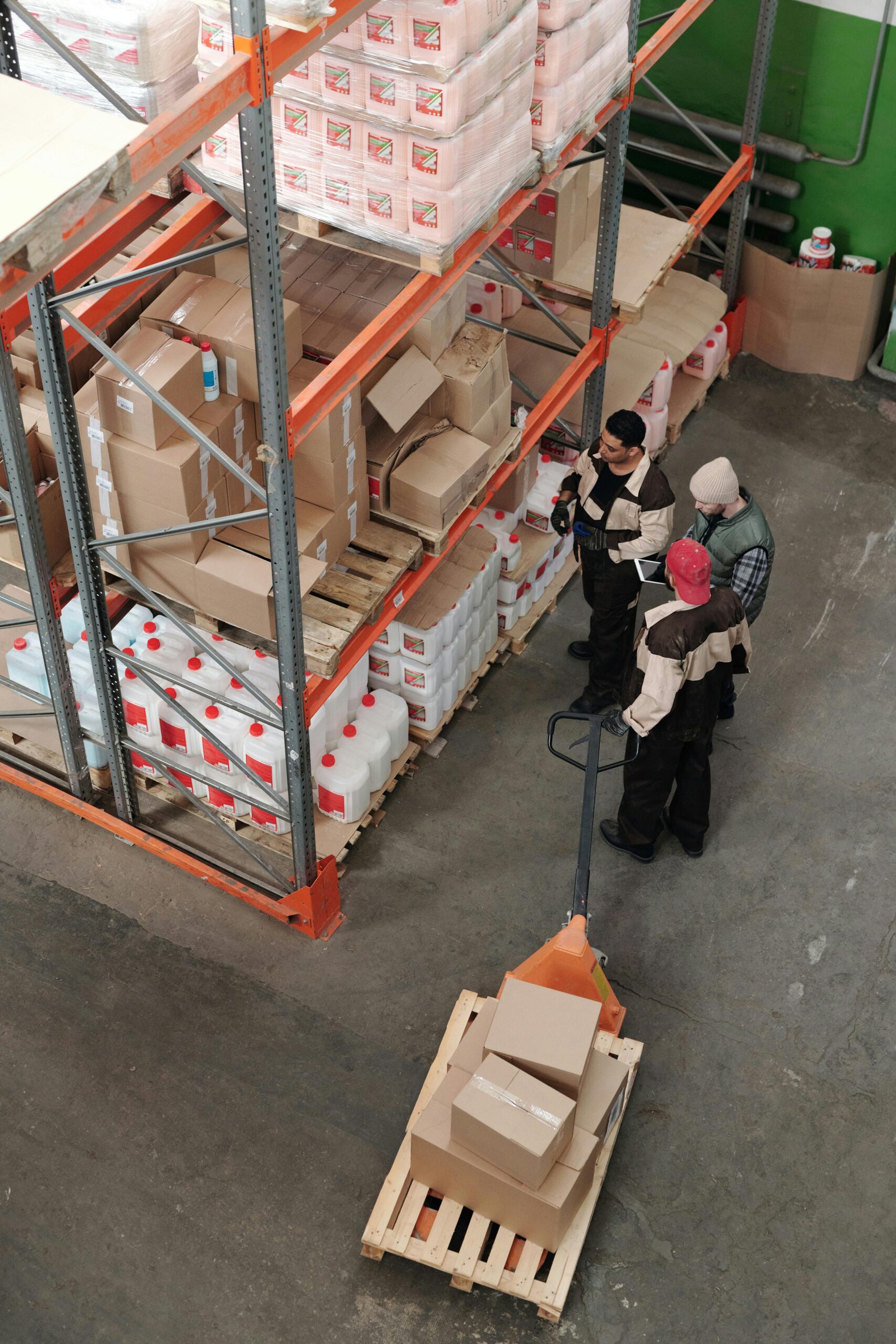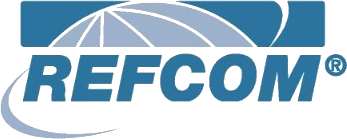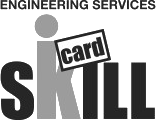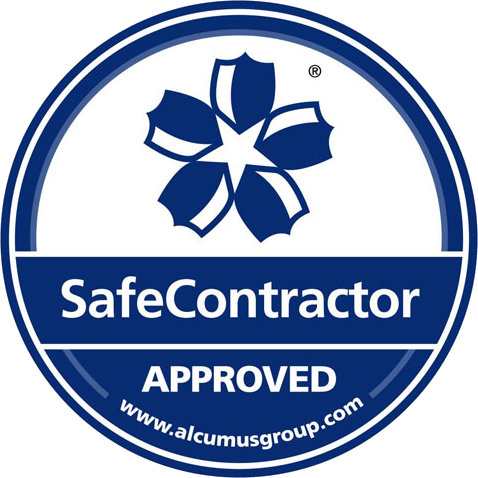Having efficient commercial cooling systems is vital for warehouses. Cooling a large space isn’t just about comfort; it’s about maintaining the quality of your stored goods, protecting your equipment, and ensuring smooth operations. If a cooling system is inefficient, it can lead to high energy costs and potential spoilage, especially for temperature-sensitive items like food, pharmaceuticals, or electronics. The financial and operational impact of a poorly cooled warehouse can be significant.
Warehouse environments present unique cooling challenges due to their size, structure, and the wide variety of goods stored. This means that selecting the right cooling system is essential to keeping everything in perfect condition while also keeping operational costs low. The right system can make a huge difference in energy consumption, help businesses save money over time, and even extend the lifespan of your equipment.
In this article, we’ll explore how efficient cooling systems can benefit your warehouse, what features to consider when choosing one, and how to maintain your system to ensure it works at its best. Whether you’re planning to install a new system or upgrade the efficiency of your current setup, understanding what makes a cooling system efficient is key to making the right decision for your warehouse. We want you to have a clear understanding of how to keep your warehouse cool, cut energy costs, and ensure your goods remain in perfect condition.
How Does An Efficient Cooling System Benefit Your Warehouse?
An efficient commercial cooling system offers several benefits for warehouses, especially when it comes to cost savings, product safety, and overall performance. Here are the key ways an efficient cooling system can make a difference:
- Reduced Energy Costs: One of the most noticeable benefits of an efficient cooling system is lower energy bills. Warehouses are large spaces, and keeping them cool can be expensive. An efficient system reduces the amount of energy needed to maintain the ideal temperature, helping you save significantly on operating costs. This is particularly important for businesses that run cooling systems around the clock, as even small energy savings can add up over time.
- Better Temperature Control: Efficient systems are designed to maintain a consistent temperature across the entire warehouse. This is crucial for warehouses storing temperature-sensitive goods like food, pharmaceuticals, and electronics, which can easily spoil or get damaged if temperatures fluctuate. By keeping a steady temperature, an efficient system ensures that all areas of the warehouse are properly cooled, preventing any potential losses.
- Extended Equipment Lifespan: When dealing with efficient commercial cooling systems, it doesn’t have to work as hard to keep the warehouse at the right temperature. This reduces wear and tear on the system’s components, extending the lifespan of the equipment. As a result, you spend less on repairs and replacements, saving money in the long run.
- Improved Air Quality: Efficient cooling systems often include better air filtration and ventilation features, which help to maintain good air quality in the warehouse. This is especially important in environments where dust, pollutants, or moisture could damage products or affect worker health. Clean air not only protects stored goods but also creates a safer, healthier work environment for employees.
- Lower Carbon Footprint: An efficient system uses less energy, which helps reduce your business’s carbon footprint. This can be an important factor for companies looking to meet environmental targets or improve sustainability efforts. By reducing energy consumption, you’re contributing to a greener future while also cutting operational costs.
An efficient cooling system is an investment that offers long-term benefits, helping to reduce costs, protect products, and ensure smoother operations in the warehouse.
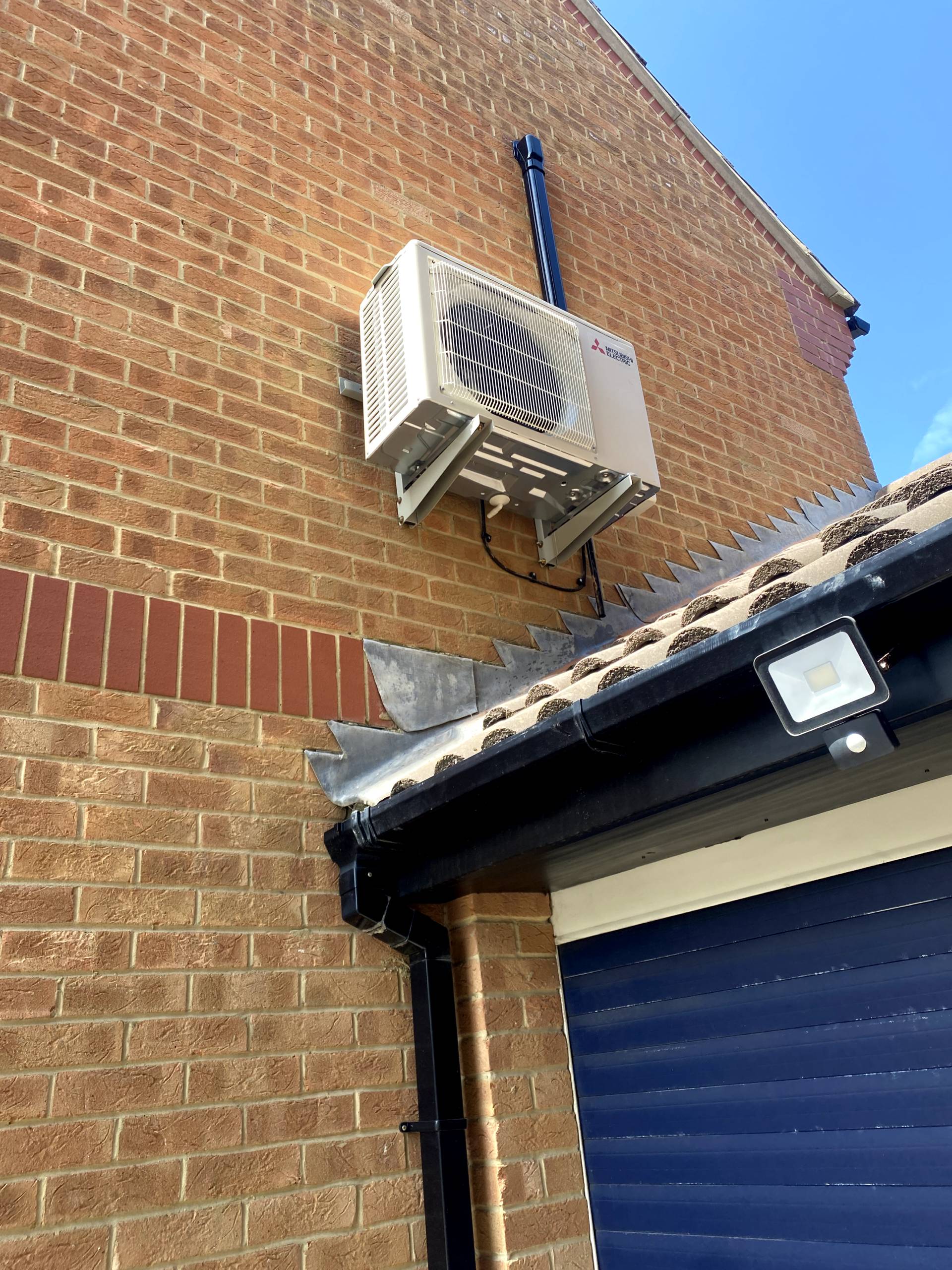
Key Features Of Efficient Commercial Cooling Systems
When selecting efficient cooling systems for your warehouse, certain features make all the difference in keeping your system running smoothly and cost-effectively. Here are the key features you should look for:
- Variable Speed Compressors: A cooling system with a variable speed compressor is a game changer for efficiency. Unlike traditional systems that run at full power all the time, variable speed compressors adjust the cooling output based on the warehouse’s current needs. This means the system can slow down when less cooling is required, saving energy and reducing wear on the equipment.
- Smart Controls and Thermostats: Modern cooling systems often come equipped with smart controls, which allow you to monitor and manage the temperature remotely. These smart thermostats learn the patterns of your warehouse and adjust the cooling based on the time of day, occupancy, or external weather conditions. This prevents the system from working too hard when it’s not necessary, helping to lower energy costs.
- Zoned Cooling: Warehouses often have different areas that require different temperature settings. Zoned cooling allows you to adjust the temperature in separate areas of the warehouse. For example, temperature-sensitive products can be kept cooler in one section while another part of the warehouse, with less sensitive goods, is maintained at a higher temperature. This ensures optimal cooling without wasting energy in areas that don’t need it.
- Energy-Efficient Refrigerants: The type of refrigerant used in your system can greatly affect its efficiency. Newer, environmentally friendly refrigerants are not only better for the planet but also improve the system’s cooling performance. These refrigerants are designed to absorb and release heat more effectively, reducing the workload on the system.
- High-Quality Insulation and Sealing: A well-insulated and properly sealed warehouse will enhance the efficiency of your cooling system. When insulation is weak or there are air leaks, the system has to work harder to maintain the desired temperature. Ensuring your warehouse is properly insulated will prevent cool air from escaping and help your system run efficiently.
- Energy Recovery Systems: These systems capture and reuse the energy produced during the cooling process. This feature is particularly useful for large warehouses, as it can significantly cut down on energy consumption by recycling heat that would otherwise be wasted.
By choosing a cooling system with these features, you ensure that your warehouse stays cool while maximising energy efficiency and reducing operational costs.
How To Choose The Right Cooling System For Your Warehouse
Selecting the right efficient commercial cooling system for your warehouse is a critical decision that can impact your operating costs and the condition of your stored goods. To make an informed choice, consider the following factors:
- Warehouse Size and Layout: The size and layout of your warehouse are key in determining the type of cooling system you need. Larger warehouses require more powerful systems to ensure even cooling throughout. If your warehouse has distinct sections with different temperature needs, a zoned cooling system might be the most efficient option. Consider how air flows through the space and whether you need separate cooling areas for different product types.
- Type of Goods Stored: The kind of products you store directly influences the cooling system requirements. For example, warehouses storing perishable items like food or pharmaceuticals need more precise and stable temperature control. On the other hand, warehouses storing non-perishable items such as textiles or machinery may have more flexibility in temperature management. Understanding your specific cooling needs will guide you to the most suitable system.
- Energy Efficiency Ratings: Always look for systems with high energy efficiency ratings, such as SEER (Seasonal Energy Efficiency Ratio) or EER (Energy Efficiency Ratio). The higher the rating, the more energy-efficient the system will be. Although energy-efficient systems might have a higher upfront cost, they save money in the long run by reducing your energy bills.
- Future Expansion Plans: If you anticipate expanding your warehouse or increasing storage capacity in the near future, choose efficient commercial cooling systems that can handle additional demand. Some systems are scalable and can be expanded easily, while others may require a complete replacement when warehouse size or cooling demands increase.
- Maintenance Requirements: Cooling systems need regular maintenance to operate efficiently. Choose a system that offers easy access to parts like filters, fans, and compressors for cleaning or replacement. Some systems come with maintenance packages or warranties, which can be a great option to ensure your system stays in top condition without unexpected costs.
- Environmental Impact: With growing emphasis on sustainability, it’s wise to choose a cooling system that uses eco-friendly refrigerants and consumes less energy. Systems designed to minimise environmental impact will not only reduce your warehouse’s carbon footprint but also align with any sustainability goals your business may have.
By considering these factors, you can select a cooling system that matches your warehouse’s needs, improves efficiency, and reduces long-term operating costs.
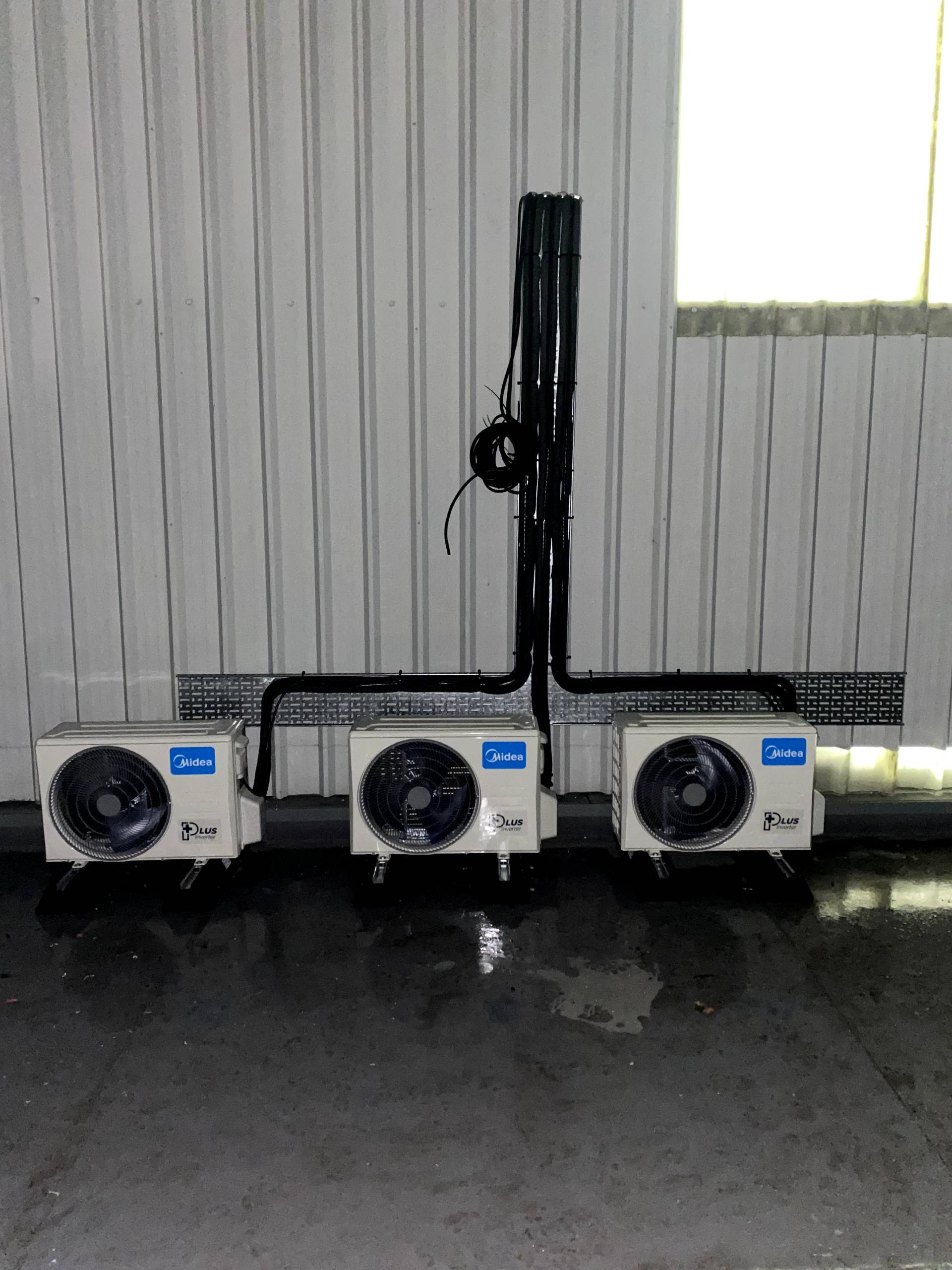
How To Maintain Efficient Commercial Cooling Systems
Once you’ve installed your commercial cooling system, regular maintenance is key to keeping it running smoothly and ensuring it remains energy efficient. Proper maintenance helps avoid costly repairs and extends the lifespan of your system. Here’s how you can maintain your cooling system effectively:
- Regular Filter Cleaning or Replacement: Dirty air filters can significantly reduce the efficiency of your cooling system. Blocked filters force the system to work harder to circulate air, increasing energy usage and causing wear on the equipment. It’s important to check the filters monthly and clean or replace them as needed, especially during peak usage seasons.
- Inspect Ductwork for Leaks: Leaky ducts are one of the most common causes of energy waste in cooling systems. When cool air escapes before it reaches the intended areas of the warehouse, the system works overtime to compensate. Regularly inspect the ductwork for leaks or gaps, and seal any that you find. This simple step can dramatically improve efficiency and reduce energy costs.
- Check Refrigerant Levels: The refrigerant is essential to the cooling process. If the refrigerant level is too low, your system won’t be able to cool the warehouse effectively, and it will consume more energy trying to reach the desired temperature. Have a professional check the refrigerant levels at least twice a year to ensure they are correct and to avoid leaks that could damage the system.
- Clean Coils and Fans: Over time, dirt and debris can accumulate on the condenser coils and fans, reducing their ability to transfer heat. Dirty coils force the system to use more energy to cool the air. Regularly clean the coils and fans to ensure efficient heat exchange and smooth operation.
- Monitor Energy Usage: Keep an eye on your energy bills and watch for sudden spikes in energy consumption. A noticeable increase could indicate that your cooling system isn’t operating efficiently. Catching these issues early allows you to address potential problems before they lead to larger, more expensive repairs.
- Schedule Professional Inspections: Even with regular DIY maintenance for efficient commercial cooling systems, it’s important to have your cooling system inspected by a professional at least twice a year. Technicians can spot potential problems that aren’t visible to the untrained eye and ensure all components are working efficiently. Regular inspections will help your system last longer and run more efficiently.
By following these maintenance steps, you’ll keep your cooling system running at peak efficiency, reduce energy costs, and extend the life of your equipment. Regular maintenance not only saves money but also prevents unexpected breakdowns.
We Keep Warehouses Cool – Efficiently
Keeping your warehouse at the right temperature is essential, and choosing the right efficient commercial cooling system plays a major role in that. A well-maintained, energy-efficient system ensures that your goods stay safe, your equipment lasts longer, and your energy bills stay manageable. But having the right system is just the first step. Regular maintenance and choosing the right features are what will truly make the difference in how efficiently your warehouse operates.
At The Cold Management Refrigeration & Air Conditioning, we specialise in providing cooling solutions that meet the unique needs of warehouses. We understand the challenges of cooling large spaces and can help you select, install, and maintain a system that works efficiently for your business. Whether you need help finding the right cooling system or ensuring your current system stays in top condition, we are here to assist you every step of the way. Don’t wait until cooling problems start affecting your business. With our expert advice and reliable services, you can ensure that your warehouse remains cool and energy-efficient year-round.
Ready to upgrade your warehouse cooling system or schedule a maintenance check? Contact us today at 07496 399738 or email us at service@tcmrefrigeration.co.uk. Let us help you keep your warehouse running efficiently!

